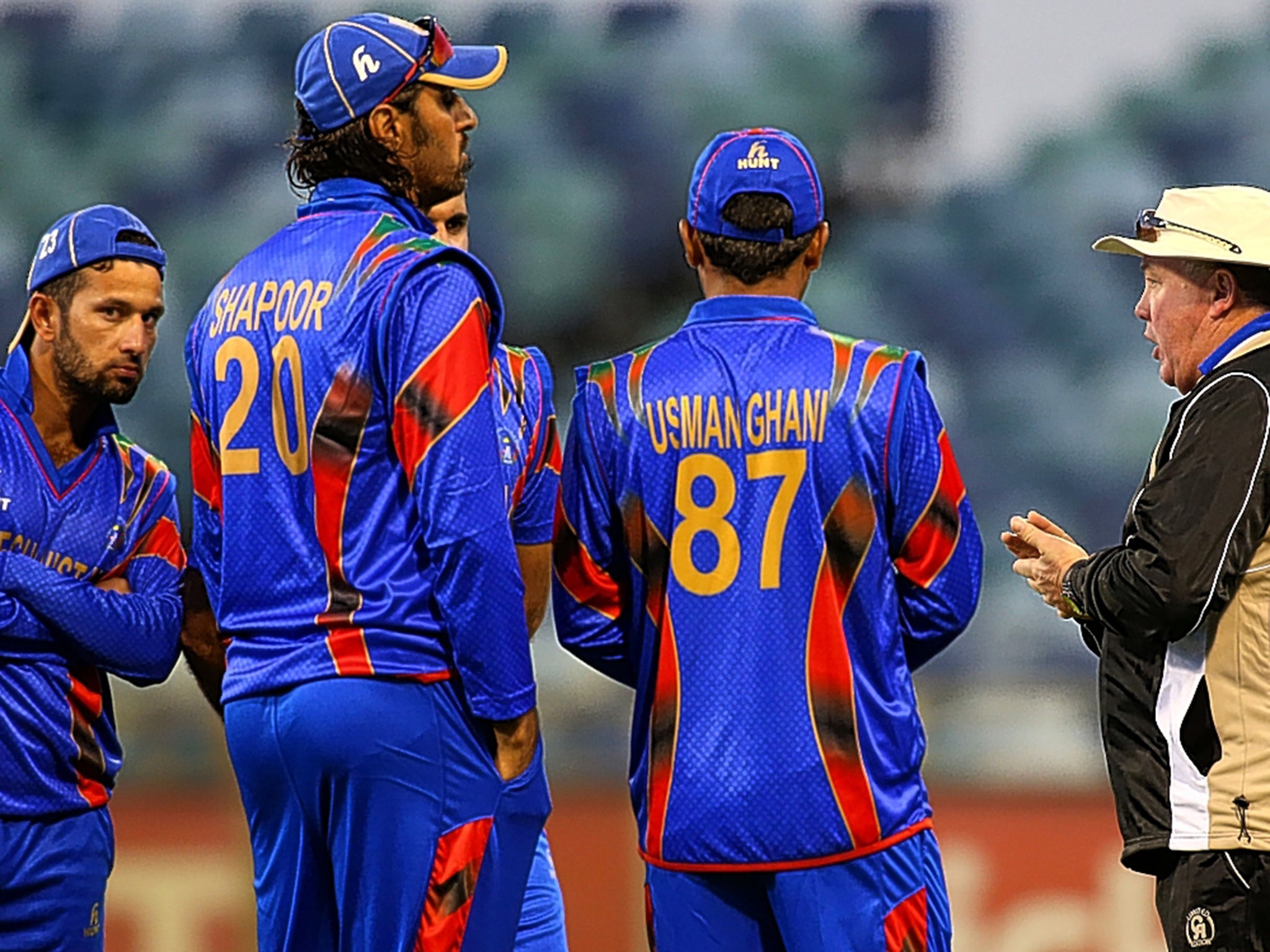Afghanistan: A team that came out of nowhere
Afghanistan can get on map if they beat Bangladesh at World Cup

Afghanistan came from nowhere to qualify for the World Cup. In their case that might be more than a well-known phrase or saying. A few years ago when the team first embarked on the improbable, uplifting journey which has taken them to this point, the need to acquire passports so they could play in other countries was slightly complicated because some of the players could not be certain where they were born.
The rise of cricket in this beleaguered country is reason enough to make sport worth playing. Sometime in the 1990s it is said that a notice was pinned to a bus stop somewhere in the North West Frontier, where several Afghans had fled seeking sanctuary with their homeland again torn apart by war.
Many of the refugees had found themselves entranced by cricket in their temporary home of Pakistan and decided to form a team. “All those who want play cricket for the Afghanistan team please meet here in three months’ time,” said the notice.
This is probably an apocryphal story – the bloke who supposedly pinned up the note has never been found – but it is representative of how cricket began in the country and how it flourished and brought joy amid joyless circumstances.
By 2001, Afghanistan were affiliated to the International Cricket Council and the returning refugees found that their compatriots were similarly in thrall to the great game. The sport grew and Afghans took to cricket easily, comfortably.
As recently as 2008 they were playing in Division Five of the World Cricket League. By 2010 they were in the World Twenty20, a tournament in which they have now appeared three times.
But the World Cup in Australia and New Zealand next month will be Afghanistan’s first attendance at the showpiece, confirmation that they can rub shoulders with the big boys. Under the sweeping changes at the ICC, which are intended to allow easier elevation for aspiring nations they may be playing Test matches before the decade is out.
As Dr Sarah Fane, founder of the charity Afghan Connection, said: “Cricket has been a wonderful force for good in the country. It has brought together people from different tribes to play each other. It has given people heroes and it has given them dreams which did not exist.”
Afghan Connection and MCC have helped to install cricket pitches in more than 50 schools across the country. There are now 500 clubs and 80,000 children playing the game. But the advance, while extraordinary, remains precarious. Precisely none of Afghanistan’s 45 official one-day internationals have been played at home. None will be for the foreseeable future.
The understandable reluctance of teams to visit is matched by a difficulty faced by all aspiring cricketing countries. Their scope for improvement is diminished by the lack of competition against the top sides. There is neither room in the calendar nor much of a will.
In the next few weeks, Afghanistan have a chance to make an abiding impression (as does their English coach, former Warwickshire opening batsman Andy Moles), a chance which has been missed in the past by the likes of Kenya and Canada. If they can defeat Bangladesh in their opening match, as they did in the Asia Cup last year, they could be on their way. Their final match in Group A could be decisive in qualifying for the quarter finals. It is against England in Sydney on 13 March. For all the excitement about their involvement they left it late to ensure their presence in the tournament.
But when they needed to win they did. Facing Kenya in the last two matches of the World Cricket Championship, a qualifying tournament lasting more than two years, they bowled them out for 89 and 93.
The runs that secured progress were struck by their engaging captain, Mohammad Nabi, who was on MCC’s groundstaff at the same time as Alex Hales, the England batsman. Nabi embodies the sort of difficulties his side have to confront: for a few months in 2013 his father was kidnapped.
“When we went back home after qualifying the airport was full of people who had come to see us,” he said. “That included politicians from parliament who were there. They were waving flags and happy.”
Nabi will have to perform at his robust peak as an all-rounder if Afghanistan are to avoid flattering to deceive. They have some assertive batsmen in Nawroz Mongol and the teenager Usman Ghani, who scored productively on their recent mini-tour in New Zealand.
Hamid Hassan is a smart swing bowler who will be anxious to make an impression after injury forced him to miss the last two World twenty20 tournaments. He, like others, has benefited from MCC’s determination to help, being a regular visitor at Lord’s nets in the summer.
The lack of experience, of the big game atmosphere which will pervade in every game, makes them fragile. They have been known to implode occasionally but in the next few weeks the chances are that for reasons entirely different from the dreadful normality, Afghanistan will put itself on the map.
Join our commenting forum
Join thought-provoking conversations, follow other Independent readers and see their replies
0Comments